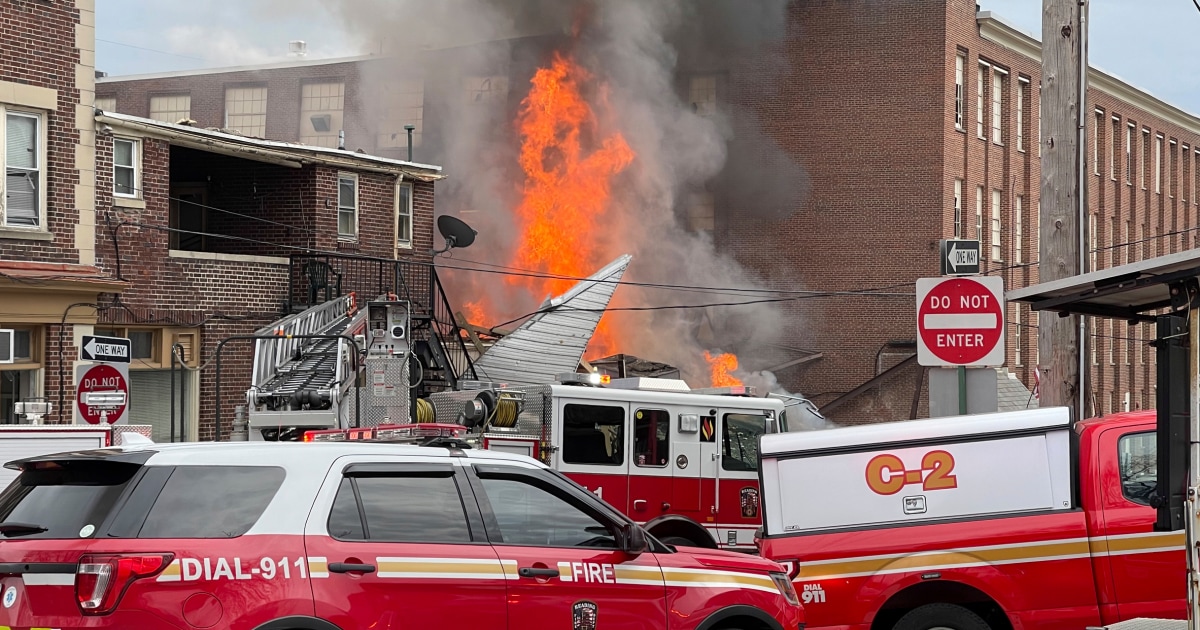PITTSBURGH (KDKA) – There’s a new alert to all Pennsylvanians about radon testing still being crucial in homes, schools, and businesses to protect your health.
A state radon expert is shining a light on why people should take “National Radon Action Month” seriously, no matter where they live in the state.
We’re deep in the coldest days of the year; Homes are closed up and the heat is cranked up. It’s the best time to check your home for radon.
“Pennsylvania is probably the most radon-prone state in the country…We have results at least 25 times the EPA guideline of every county and some much more than others,” said Bob Lewis, the radon program manager for the Pennsylvania Department of Environmental Protection’s Bureau of Radiation Protection.
According to the American Lung Association, about 40 percent of Pennsylvania homes are believed to have radon levels, specifically above the EPA action level of 4 picocuries per liter (PCI/L).
Lewis said the naturally occurring radioactive gas can get into your home from the ground.
“It’s easily able to move from the soil and the rocks below the foundation, into the foundation,” he said.
You can’t smell, taste, see, or feel radon.
“Out of sight, out of mind, we can’t see it,” said Lewis.
He said breathing high levels of radon into your lungs can lead to serious health problems.
“So, we’re breathing this radioactive gas into our lungs and that’s where it’s deposited and that’s where it can do potential damage. These radioactive particles basically get lodged on the epithelial lining of your lung, the surface of the lung, mostly in the upper tracheobronchial areas. And over long-term exposure, they can increase one’s risk of getting lung cancer,” Lewis said.
According to the EPA, radon is responsible for an estimated 21,000 lung cancer deaths every year in the U.S., and radon is the second leading cause of lung cancer behind smoking.
Lewis said the first step to protect yourself and your family from the dangers is to buy an easy-to-use test kit at a hardware store or online. Then test your home and send the sample to a PA-certified lab. You can also hire a state-certified testing company.
“Get your test in the basement, and turn it back to the lab. You’ll get some test results after a week and a half or so,” he said.
If your test results are high, take action to reduce the levels in your home. You’ll need a certified radon mitigation contractor to install a radon reduction system.
“It’s an active system that uses some PVC pipe in the basement and it draws the air from underneath the basement floor to the outside and then dumps at the roof line. So basically, you have a vacuum cleaner underneath your house. Those systems work very well. They’re relatively low maintenance, about $1,000, generally speaking, for a system to be installed,” Lewis said.
The last step is to remember to monitor your mitigation system. According to the DEP, you should periodically check if the fan is running by looking at the U-tube manometer on the PVC piping of your system. The fluid levels on each side of the glass tube should be uneven.
Lewis said you should also do a radon test in the winter once every two years to make sure the mitigation system is still working properly.
While you have to pay for the system out of your own pocket, Lewis said taking radon dangers seriously is worth it in the end.
“It’s obviously a health benefit for you and your family. And it’s also a benefit when once you go then you go to sell the house too, at least if you’ve taken care of it,” he said.
You might not think about the dangers if you don’t own a house, but it’s recommended radon testing be done in rental homes, schools, and businesses too.
“We encourage, besides home, private homes, schools, and businesses to test as well. We’ve Been working with the Department of Education for quite a few years trying to get all the school districts to test,” Lewis said.
Call the DEP the Radon Hotline at 800-237-2366 for help with understanding test results and what action to take after getting back high results.
A list of state-certified radon contractors, labs, and testers is also available on DEP’s website.
The Allegheny County Health Department is providing more than 900 free radon test kits for residents. Pick up a test M-F between 8 AM and 4 PM at the Housing and Community Environment office (3190 Sassafras Way, Pittsburgh, PA 15201). One kit per household while supplies last so call ahead at 412-350-4046.
The American Lung Association is also offering free radon test kits. You can order them online.
Jessica Guay
Jessica Guay joined KDKA as a reporter in February 2021. Before joining KDKA, Jessica was a morning anchor and reporter at WJAC in Johnstown, Pennsylvania. She was also an anchor and reporter at WCHS in Charleston, West Virginia, and at WTOV in Steubenville, Ohio.






















/cdn.vox-cdn.com/uploads/chorus_asset/file/25822586/STK169_ZUCKERBERG_MAGA_STKS491_CVIRGINIA_A.jpg)

/cdn.vox-cdn.com/uploads/chorus_asset/file/25821992/videoframe_720397.png)




